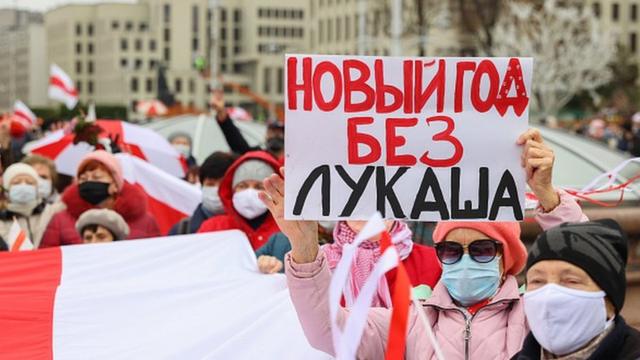Challenge for the Opposition-2025: How to Preserve Domestic Political Agency?
 The situation has not changed
The situation has not changed

The opposition continues to intensify international pressure on Lukashenka’s regime, particularly towards the release of political prisoners. However, sanctions have not produced tangible results: the Belarusian authorities, with the Kremlin’s support, isolate themselves from external influences. Tsikhanouskaya’s coalition leadership faces a serious challenge in the form of the 2025 presidential campaign.
The regime adapts to international restrictions largely through political, diplomatic, and financial-economic support from the Kremlin. The number of politically motivated detainees increases weekly, now exceeding 1,400.
The regime’s repressiveness develops according to domestic political expediency – the preservation of power by the ruling class. The authorities aim to achieve this goal through preventative measures by the security forces against the protest movement and the opposition (especially in the run-up to the 2025 elections). External factors play a supplementary role in the repressions against dissenters.
The pressure from the West and international organizations (as well as the opposition’s attempts to strengthen sanctions) have a very limited impact on Lukashenka’s decisions to release political prisoners or initiate certain liberalization, due to:
- insignificant connections (political, financial-economic, and diplomatic) of the ruling class with Western capitals,
- compensation by the Kremlin for losses from sanctions,
- the tense situation in the region due to the war in Ukraine.
An opportunity window for the release of political prisoners may appear in case of:
- the ruling class regaining confidence in total control over the political process, destruction of the protest movement, and marginalization of the influence of its opponents;
- reduction of the role of the Russian factor in the stability of Lukashenka’s regime;
- conversely, a clear threat to Lukashenka’s power from the Kremlin.
Meanwhile, the opposition continues to lose influence over the domestic political agenda and connection with the audience within the country.
On the one hand, focusing on sanction rhetoric, evasion, and ignoring the domestic political agenda (including the presidential campaign) limits the opposition’s audience within the country.
On the other hand, Tsikhanouskaya’s coalition seeks to consolidate regime opponents and accordingly reflects the sentiments of sympathizers who hold boycott-ultimatum positions. This dictates a focus on the themes of political prisoners, support for civil society, and diasporas.
Thus, during the authoritarian reaction, the opposition has an extremely limited impact on the development or cessation of the regime’s repressiveness. However, within the democratic movement, there is an increasing demand for Tsikhanouskaya’s coalition to adjust its approaches to the domestic Belarusian agenda.
Subscribe to our newsletter




Situation in Belarus
Constitutional referendum: main consequences


 Video
Video
How to count the political prisoners: are the new criteria needed?


 Video
Video
Paternalism In Decline, Belarusian Euroscepticism, And The Influence Of Russia


 Video
Video












